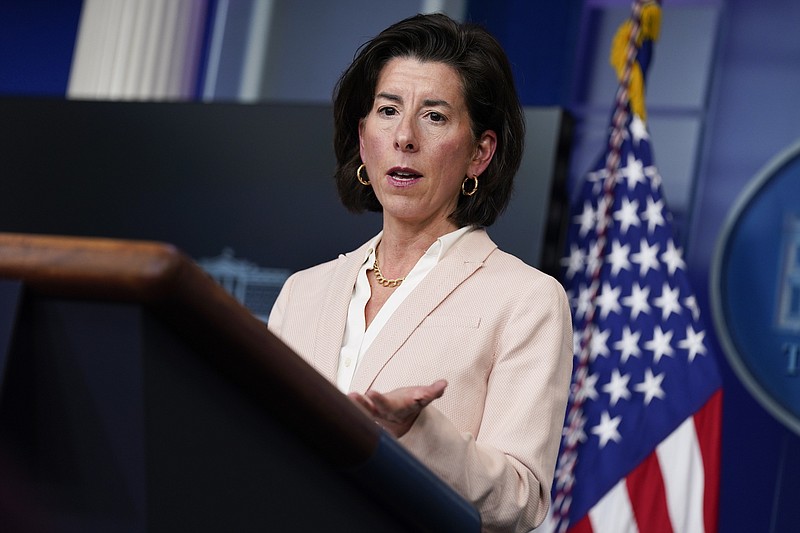American companies and companies that make money in the United States are not paying enough money in taxes. Even as profits have soared, tax payments have declined. Fifty-five of the nation's largest corporations - including FedEx, Nike and the agribusiness giant Archer Daniels Midland - paid nothing in federal income taxes in 2020, despite collectively reporting more than $40 billion in profits, according to the Institute on Taxation and Economic Policy.
The federal government lets companies avoid taxes by shifting profits earned in the United States to countries with lower tax rates. Every year, American firms, especially in the technology and pharmaceutical sectors, brazenly pretend to earn billions of dollars in microstates like Barbados, Bermuda and the Cayman Islands, which are more than happy to play along. Companies and countries both profit, at the expense of the United States.
U.S. policymakers have rewarded this naked legerdemain with rounds of tax cuts, most recently in 2017, partly justified as necessary to induce companies not to cheat. The tax cuts have also been sold as magic fertilizer that will cause the economy to grow faster.
This laissez-faire policy has crammed money into the pockets of wealthy shareholders while depriving the government of needed revenue. But it has failed to deliver its advertised benefits.
In a welcome course correction, President Joe Biden is proposing to increase corporate income taxation and to spend the money on infrastructure. His plan would raise the statutory tax rate on corporate income to 28% from 21%, still well below the pre-2017 level of 35%.
However, collecting more money is not as simple as ratcheting up the corporate tax rate.
In 2017 multinational corporations stashed 40% of their profits, or more than $700 billion, in tax havens like Luxembourg and Bermuda, according to research by economists at the University of California, Berkeley, and the University of Copenhagen. Raising tax rates, in isolation, would encourage evasion. It would be like drawing water with a larger sieve.
The core of the Biden plan, therefore, is not the increase in the statutory rate. Rather, it's a set of companion measures to tax the profits that American companies stash in other countries.
Under the plan, companies would be subject to a 21% tax on income reportedly earned in other countries, alongside the 28% tax on domestic profits. Companies would get credit for taxes paid to foreign governments; the United States would collect the rest. A company that reported $1 billion in earnings in a country with a 10% tax rate would pay $100 million in taxes in that country and an additional $110 million to the U.S. Treasury Department. This simple fix would sharply reduce the incentive to shift profits to low-tax countries.
The Biden administration also is pressing for an international agreement to establish a minimum corporate income tax rate, so foreign corporations could not continue to make use of tax havens. The benefits would extend beyond the United States. Developing nations are particularly reliant on corporate tax revenue. The International Monetary Fund estimates that profit shifting deprives them of $200 billion in annual revenue.
An international deal, however, is not a prerequisite for carrying out the balance of the Biden plan. The legitimate foreign business of American companies is mostly conducted in nations with relatively high corporate tax rates. And even without a deal, the United States could put pressure on tax havens.
The Biden plan would impose tax penalties on the U.S. arms of foreign companies based in countries that maintain low rates.
Corporations and many economists caution that higher tax rates will discourage investment by increasing the return necessary for an investment to be profitable. They say workers will feel the pain of higher tax rates, too, in the form of slower wage growth.
But recent history belies such bleak predictions. It is also a mistake to assess economic policy solely on its contribution to overall economic growth. The distribution of prosperity matters, too; taxing corporations to pay for public services is a worthwhile trade-off.
The Biden administration is also proposing a final layer of reinforcement for the income tax: a requirement that companies with income exceeding $2 billion a year pay in taxes at least 15% of the income reported to investors. The average American multinational paid just 7.8% of its income in corporate income taxes in 2018, according to the congressional Joint Committee on Taxation, so imposing a higher minimum has obvious political appeal.
But companies paying less than 15% of income in taxes may be taking advantage of tax breaks that serve a legitimate public purpose, such as encouraging spending on research or investing in affordable housing developments. If the alternative minimum tax allows those breaks, it won't raise much money. If it does not include those breaks, it will undermine those goals. In practice, it's a choice between a meaningless gesture and a mistake.
Instead of using an alternative minimum tax to patch problems with the primary tax code, Congress can directly address the use of existing tax breaks. The necessary changes can and should be achieved under a single corporate income tax structure. Raise the statutory rate, crack down on the use of foreign tax havens and buy the nation something nice.
The New York Times
